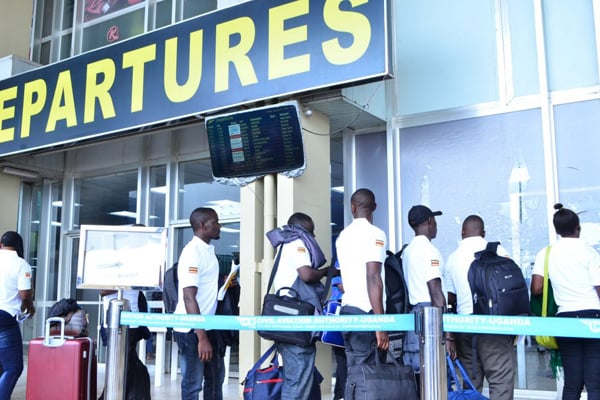Prime
Let migrant measures be humanitarian, not securitarian

What you need to know:
- Initially, the well-to-do countries tried to crack deals with the less wealthy countries (‘safe third countries’) to receive all new arrivals in exchange for some bait (as true of an African leader).
The list of countries trying to implement restrictions on migrants and refugees continues to grow.
Look at Europe, America, and Australia, measures to stop the inflow of people who need peace and security are popular in those boardrooms. These all happen despite constant calls to ensure that such needy people get the welcome and support they require.
However, despite all their efforts, the number of people on the move continues to increase.
The measures do not seem to be achieving the objectives. That is why the general outlook is that these restrictions are more securitarian than humanitarian.
Initially, the well-to-do countries tried to crack deals with the less wealthy countries (‘safe third countries’) to receive all new arrivals in exchange for some bait (as true of an African leader).
I believe this approach has not delivered the results intended. What we see instead is; that many more refugees are desperately trying to go abroad, including through those countries that are making it extremely difficult for migrants to reach their soil. They do not consider that those ‘safe third countries’ do not have the facilities and infrastructure to provide the equivalent comfort that migrants need.
So, we see rich countries doing all they can to close every avenue for migration without good proposals for safe routes for migrants to go to safety. Indeed, countries are inclined towards potentially having laws that ban migrants from crossing over in small boats to get refuge.
If the measures are in good faith, let these countries prescribe that small boats should not be used because of the high risks involved. They should insist that boats should meet the standards that ensure fleeing people are safe and secure. Then we will see such measures as truly humanitarian. For now, these measures leave no alternatives that people can use to go to safety. They only provide for the detention and transfer of migrants to a ‘safe third country’ or their country of origin, where migrants are fleeing. These countries considered safe third countries are also struggling to provide basic needs to their citizens.
So, why do the elite countries try to seal agreements with poor countries to keep refugees, despite these third countries lacking the necessary facilities and resources to process and maintain refugees? How, then, will it be possible for safe third countries to honour agreements where they host refugees and migrants on behalf of these rich countries? You see! This objective has got to be less humanitarian and more securitarian. The reason they embark on these risky journeys is much bigger than trying to return them to third-party countries.
Let’s see the success rate of this. From the time countries began to block refugees, there have not been any success stories to write back home. Instead, there have been many more refugee crossings and arrivals abroad. There have been many more deaths in the quiet waters. There have certainly been many more meetings in the boardrooms to try to find a way of solving the refugee problem.
Therefore, as rich countries develop newer ways of handling the refugee situation, refugees are also innovating better alternatives to try to find safety. In the end, humanity must win. Do not blame refugees that are running away to homes away from home. There is no crime in using desperate means to reach. What is criminal is stopping refugees from reaching their destinations. Therefore, as we try to find solutions to the refugee story, we need to take extra care, especially in making and implementing (anti)migration measures. We should be more humanitarian than securitarian.
Simon J. Mone




